Hello, all!
We have three talks coming up at the Salmon Library, the week after Spring Break, that will cover three fun and important topics, and everyone is welcome.
Our “Three Talks, Three Subjects, One Week, One Place” (say it three times fast, it’s actually kind of easy!) extravaganza will cover topics from
- graphic novels and comics in education, to
- bad science reporting meets good free science resources, to
- the future and history of the book.
We’ll have door prizes and snacks, and leave time for a forum discussion and question and answer. At a glance, here’s our poster for the events (which you might have seen around).
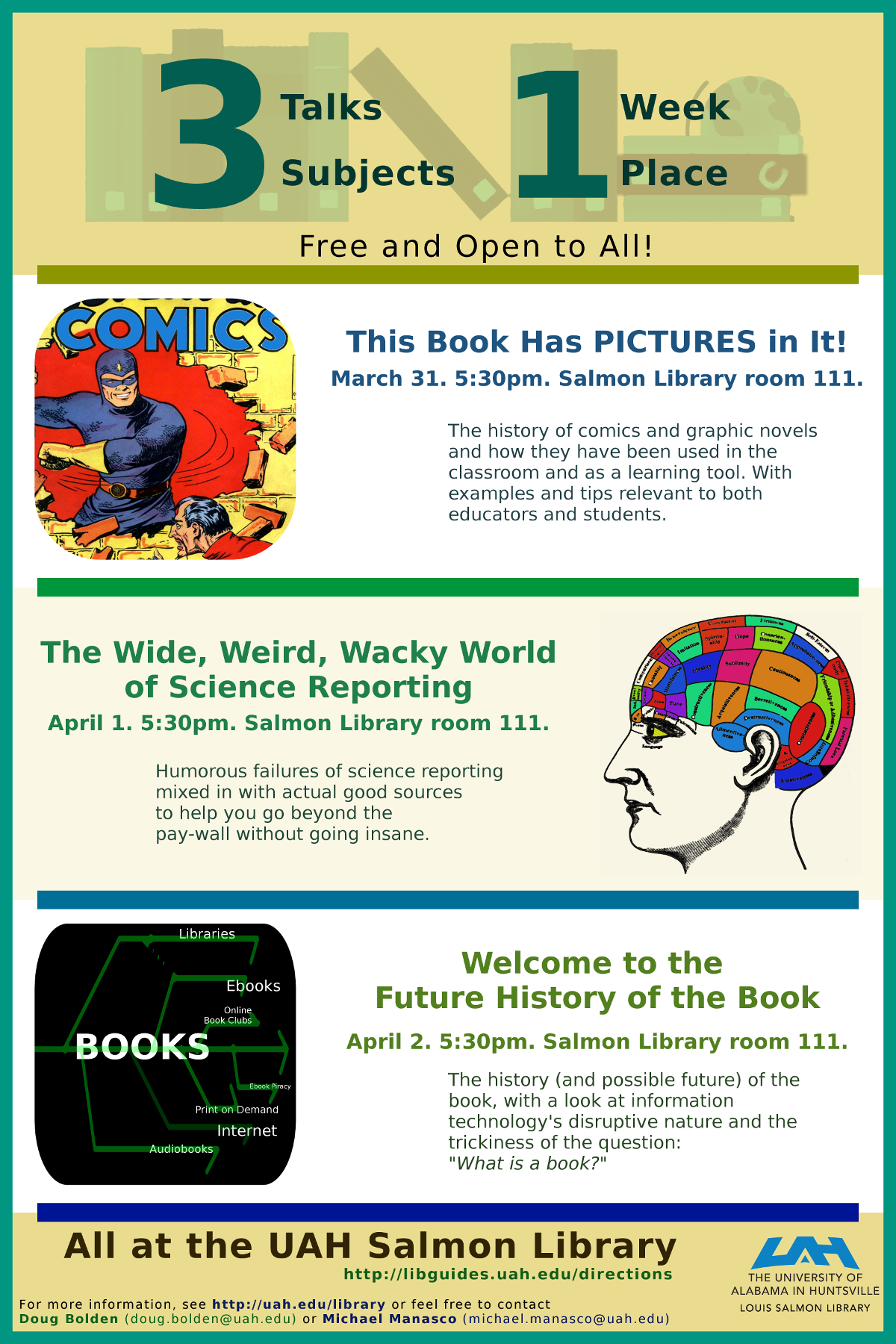
Individually, the three talks are as follows (click the title to see more information):
(Tuesday, March 31. Library room 111. 5:30pm.) Michael Manasco will talk about comics and graphic novels both as a history of the art and more specifically in how they are used in education and the classroom. He will include tips and examples relevant to both educators and students, and a discussion of significant graphic novels.
(Wednesday, April 1. Library room 111. 5:30pm.) An April Fool’s Day Special. Doug Bolden will look at not only how poorly some science reporting has fared (and some infamous science urban legends), but will also tell you how to find good quality science resources using the open web (and a few that are a little more locked down but easy to get to once you know how).
(Thursday, April 2. Library room 111. 5:30pm.) Doug Bolden returns to talk about the past and possible future of the book. This talk will examine the act of reading itself, and go into the disruptive nature of information technology (its destructive quality has been perhaps overstated). Doug will also attempt to explain how we are in the awkward teen stage of the digital text and include a discussion about the deceptively simple question, “What is a book?” [For those who spotted it, yes, this talk was originally planned for February 26. However, due to a couple weeks of snow and ice, it was cancelled and moved to April 2nd. You can still read my initial blog pot outlining questions I hope to address and deal with in it.]
If you want to contact Michael Manasco, you can do so at michael.manasco@uah.edu, and if you want to contact Doug Bolden, you can do so at doug.bolden@uah.edu.
All three talks are part of our Refined Researchers series. Down below are individual graphics for them, as well as a flyer for the series as a whole. After them, we’ll have just two left. One, “Oh the Cites You’ll See”, will deal with citations, impact factors, and so forth. Then, another, “Online Job Hunting 101”, will talk about researching job opportunities online and the tools you need and how it differs from old school job hunting. More details on those are forthcoming.
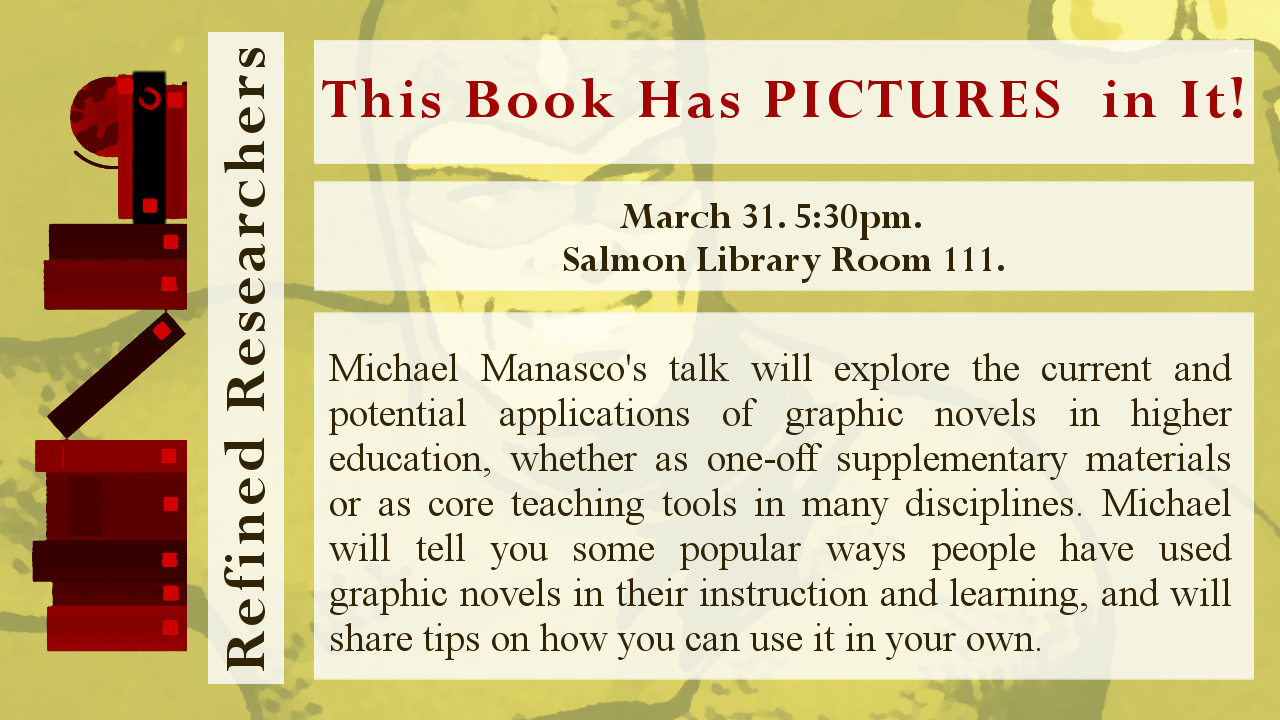
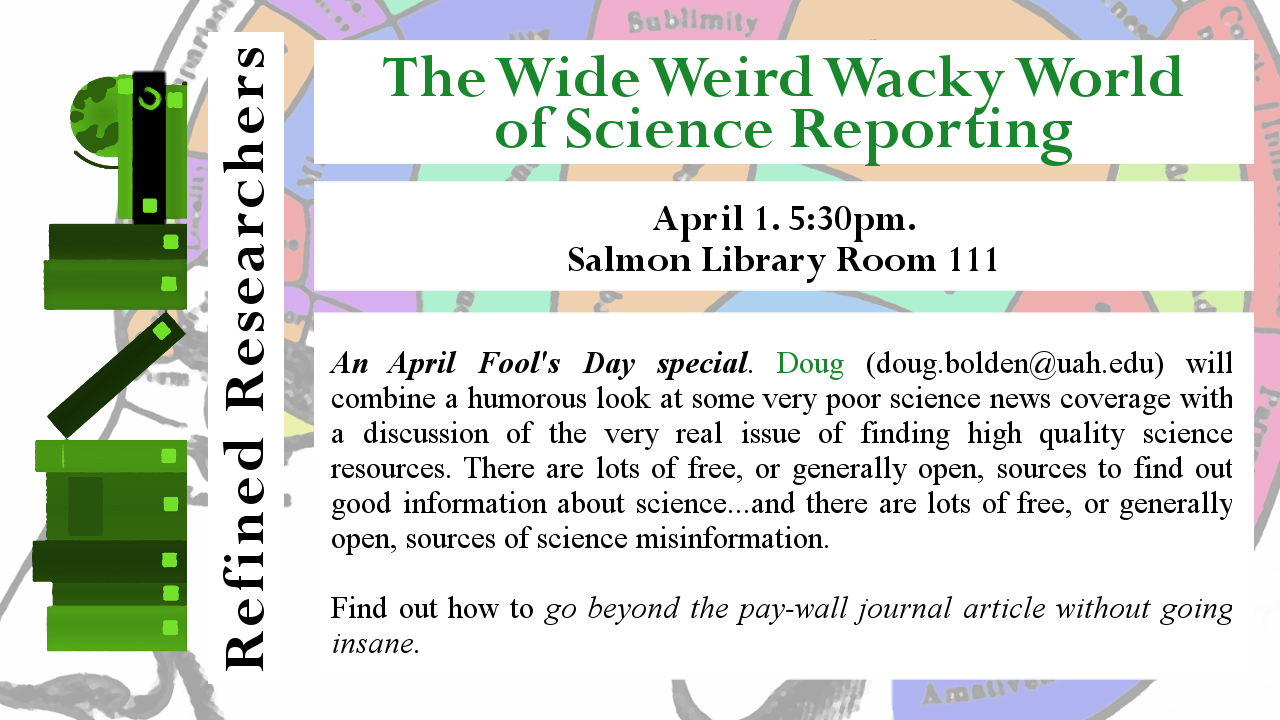
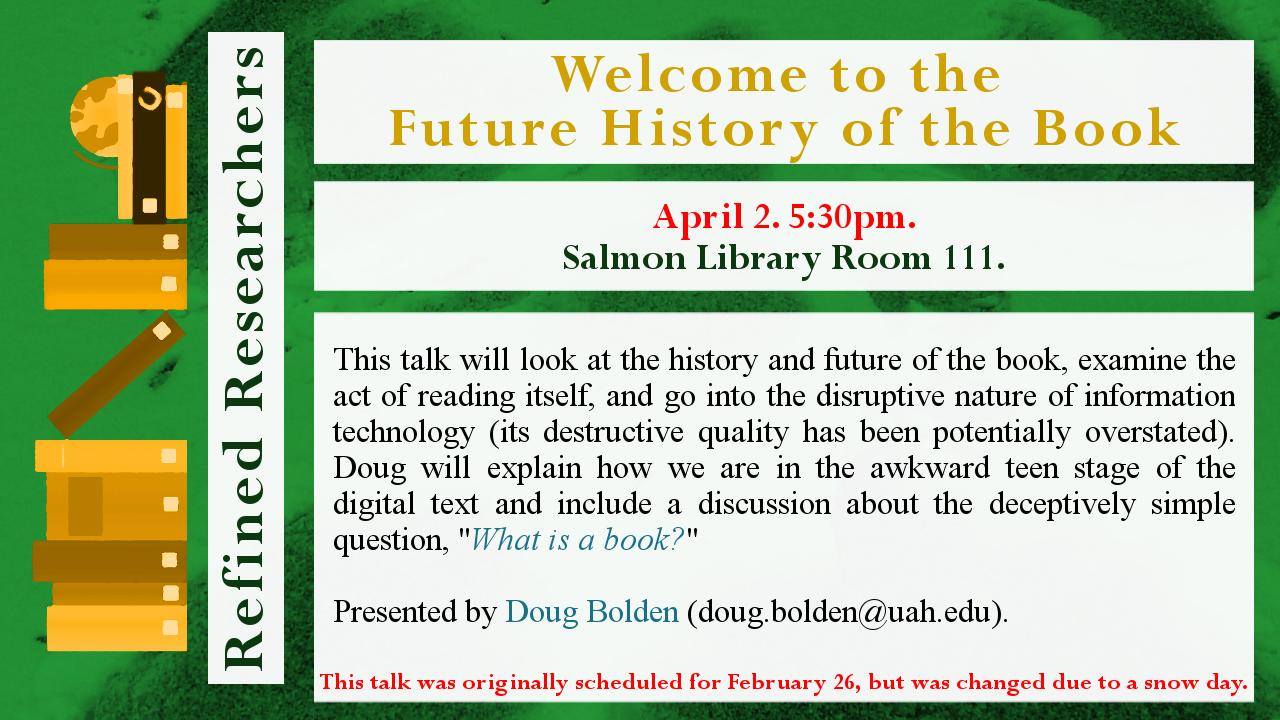
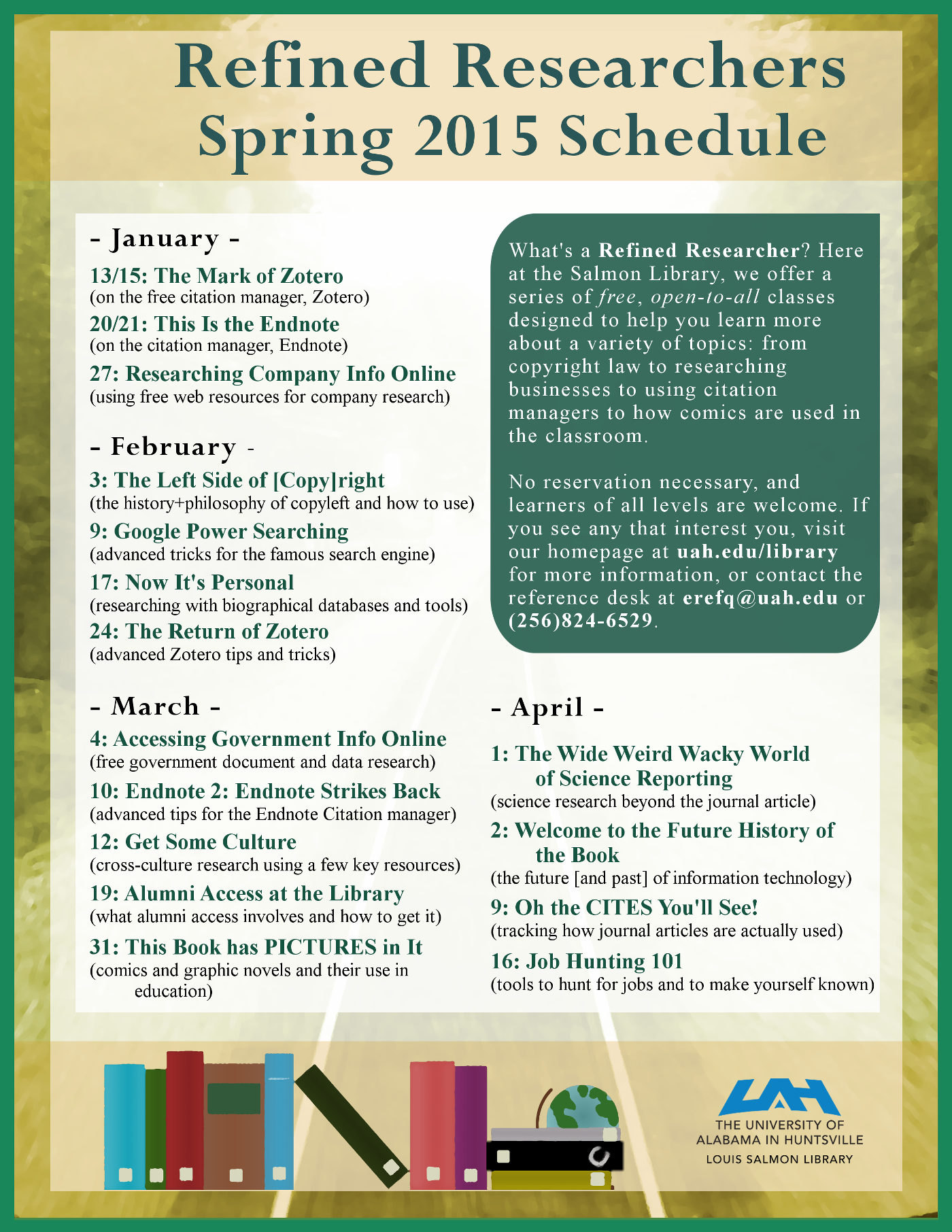

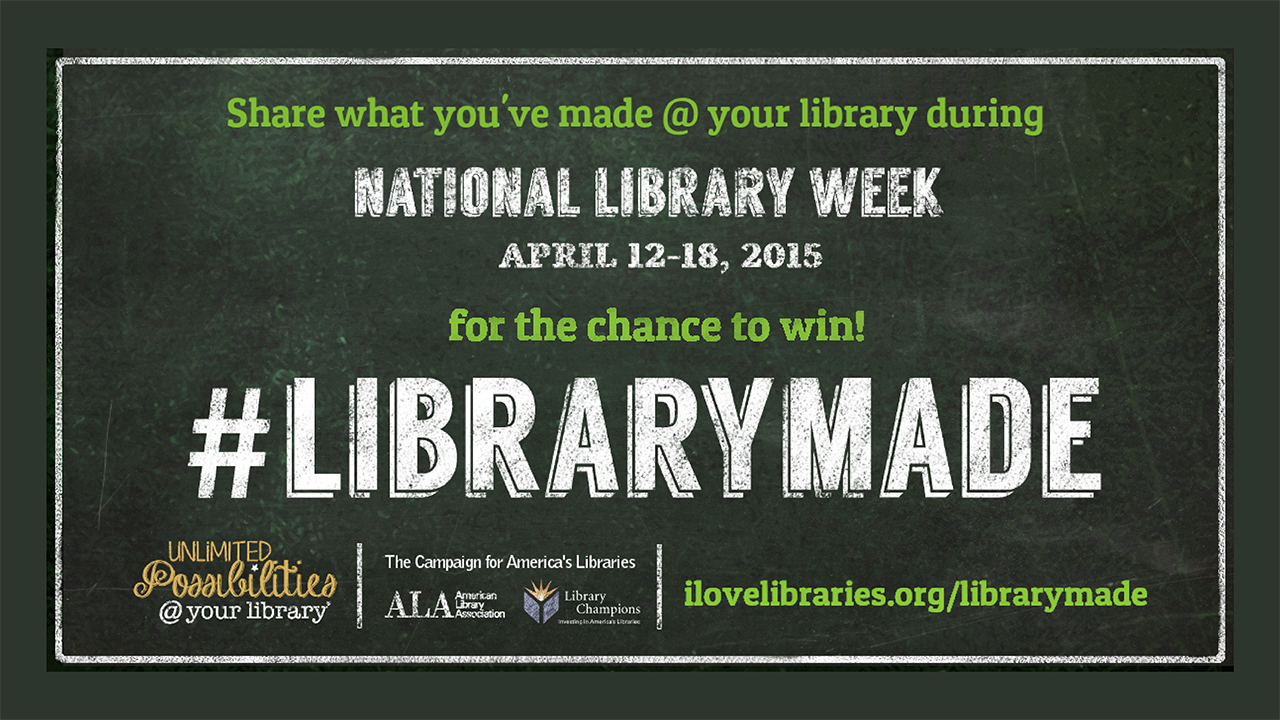
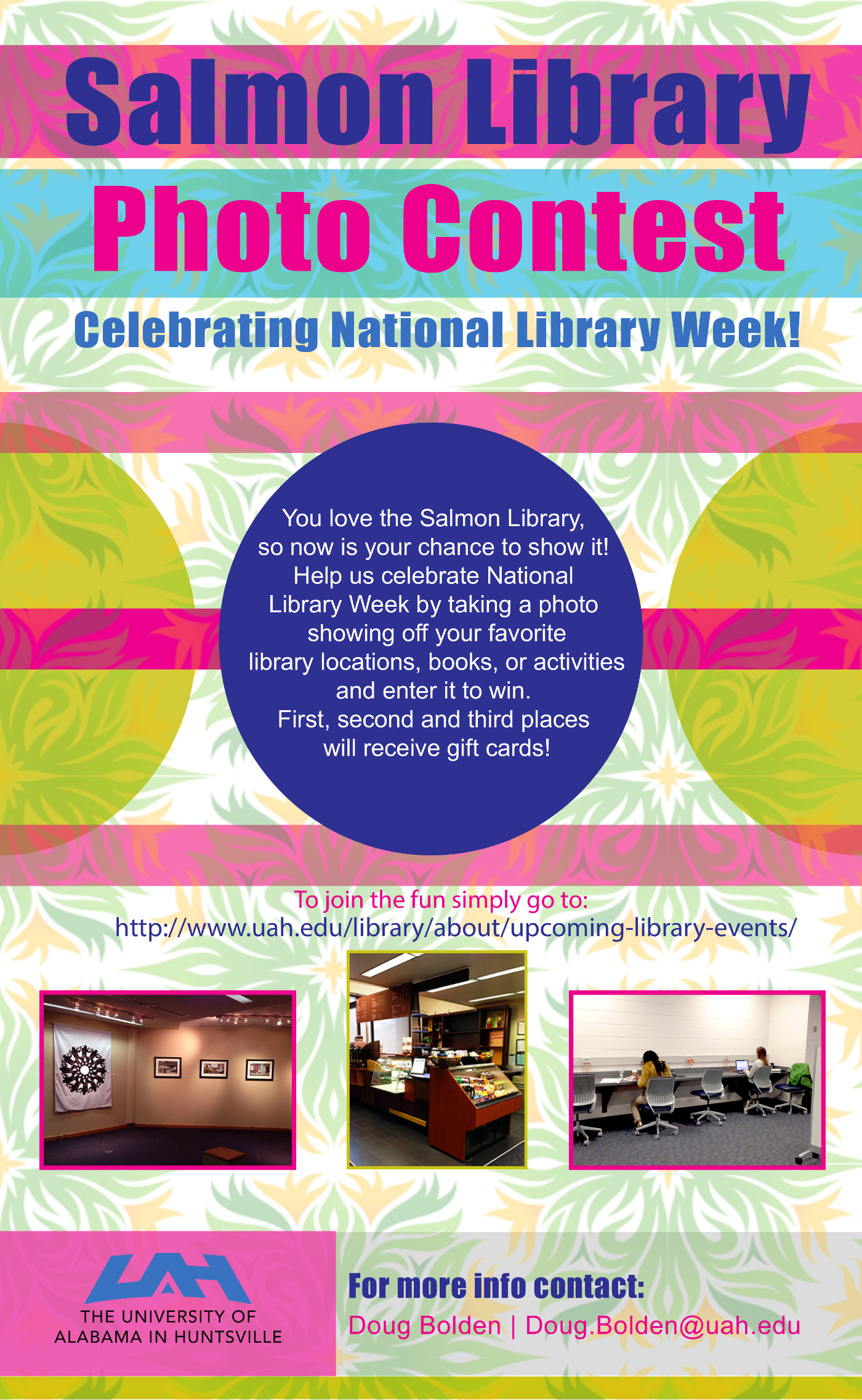
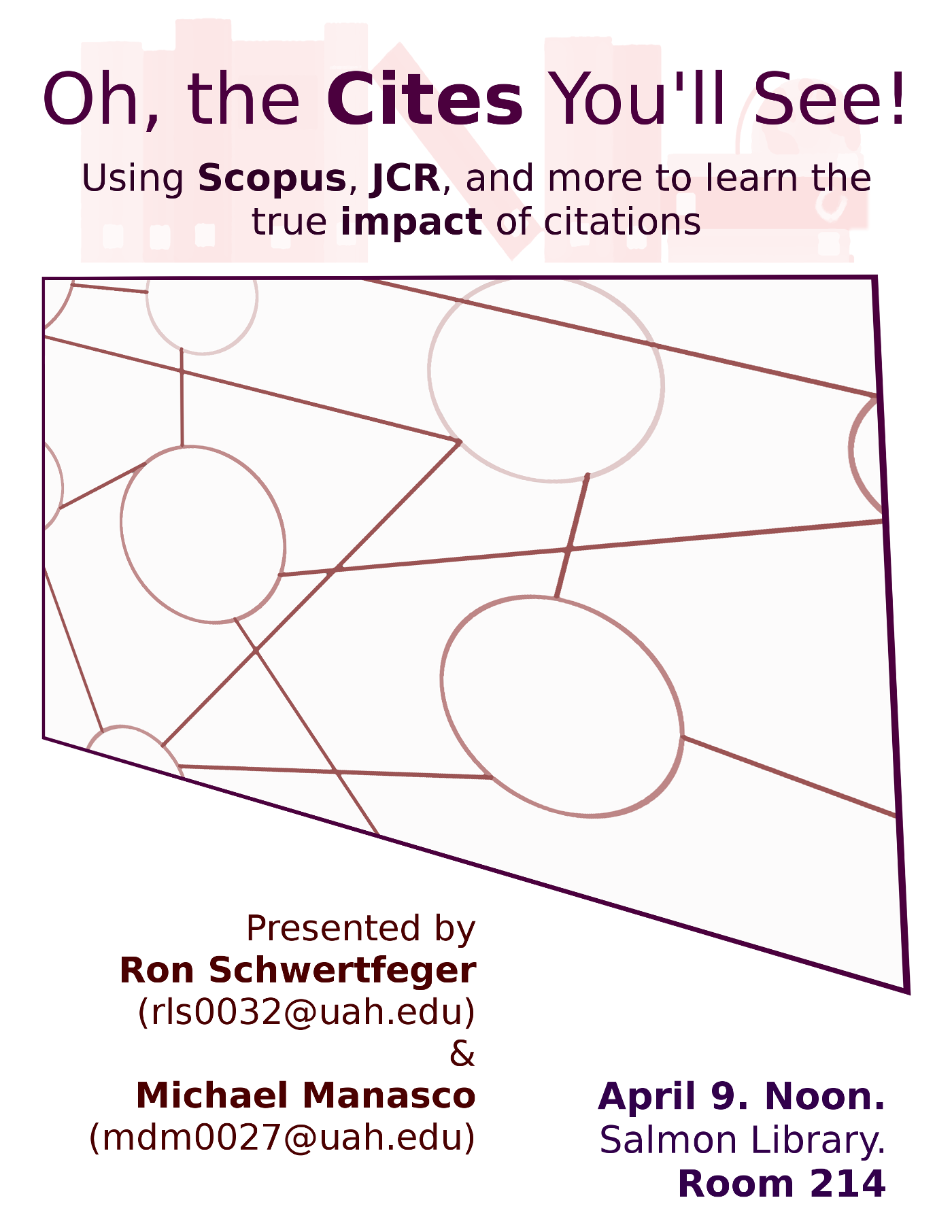





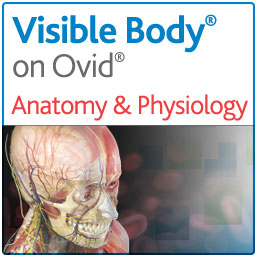



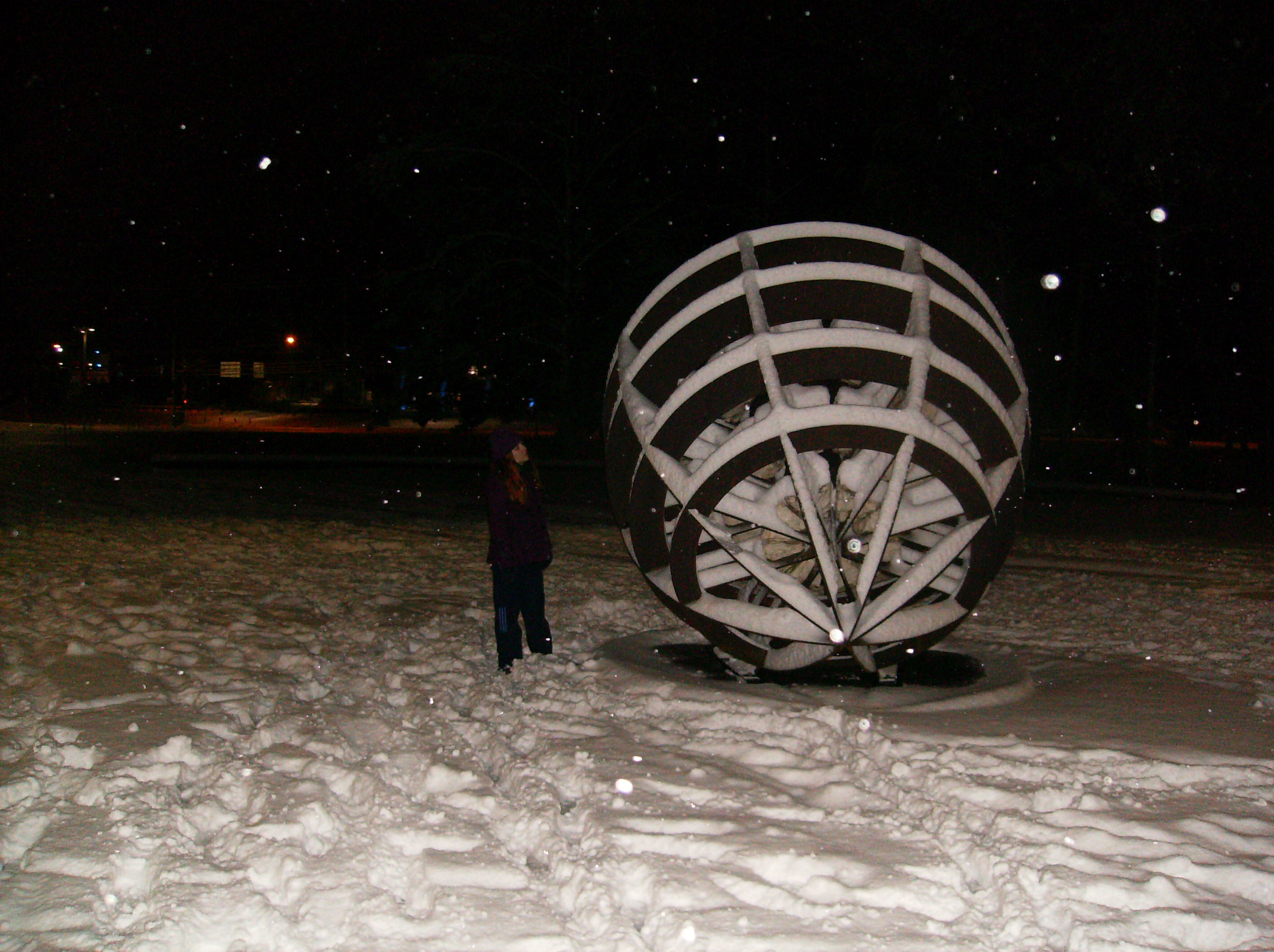

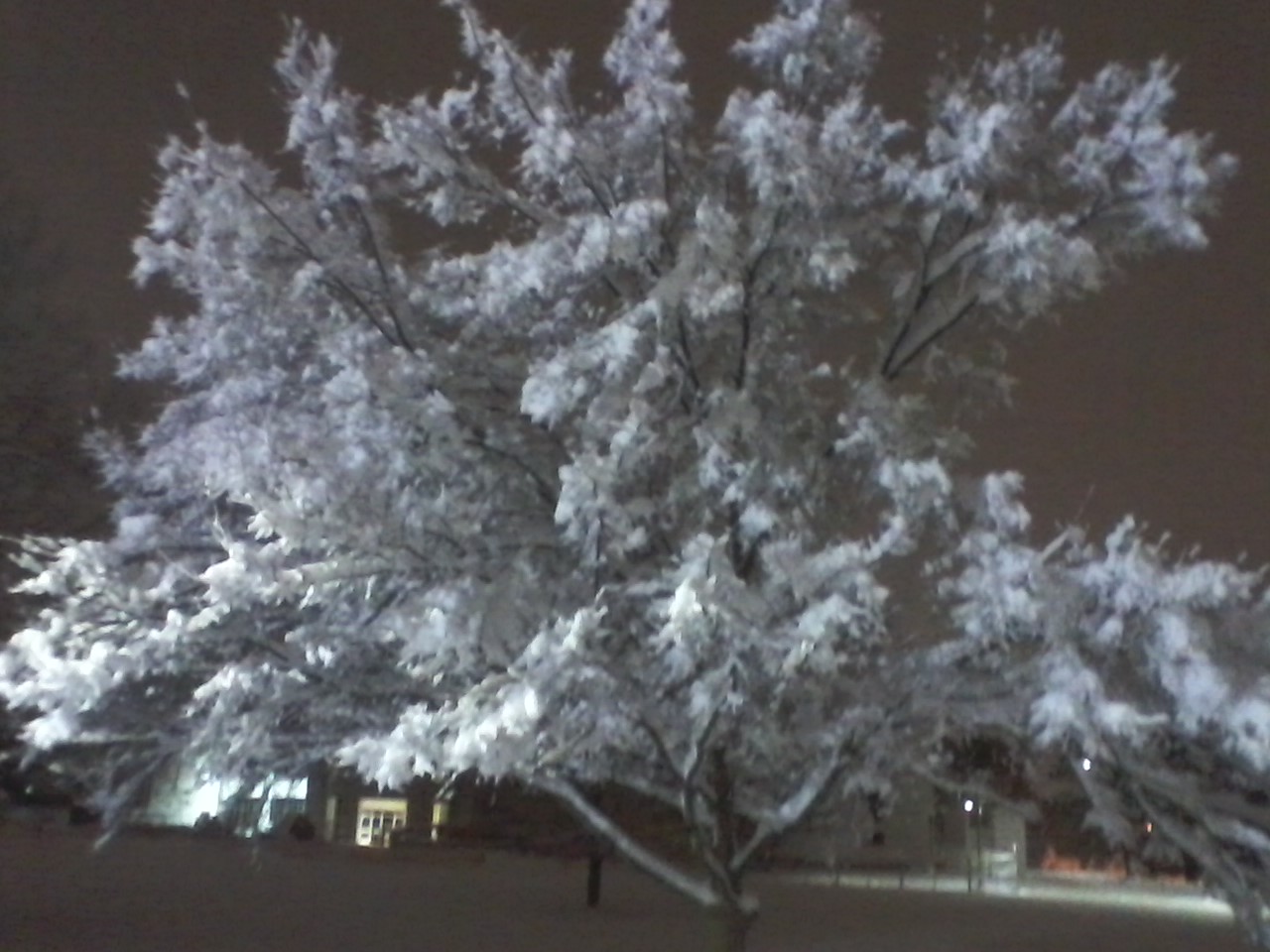
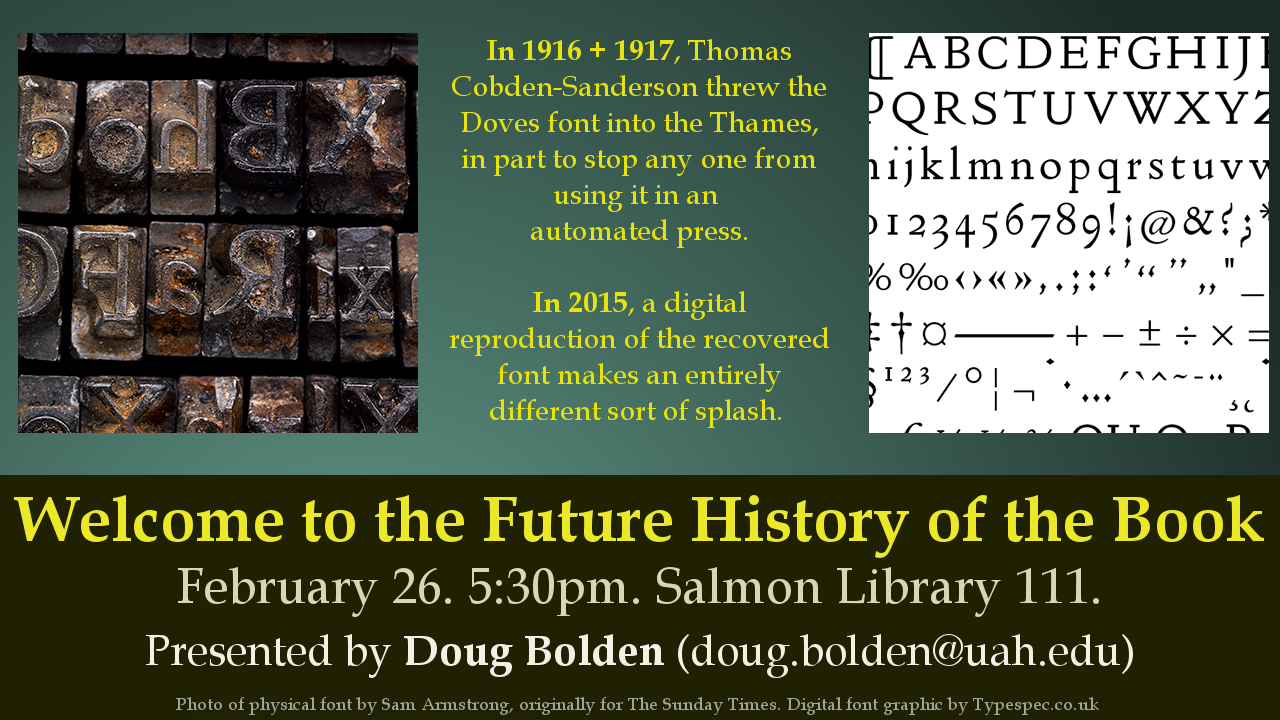
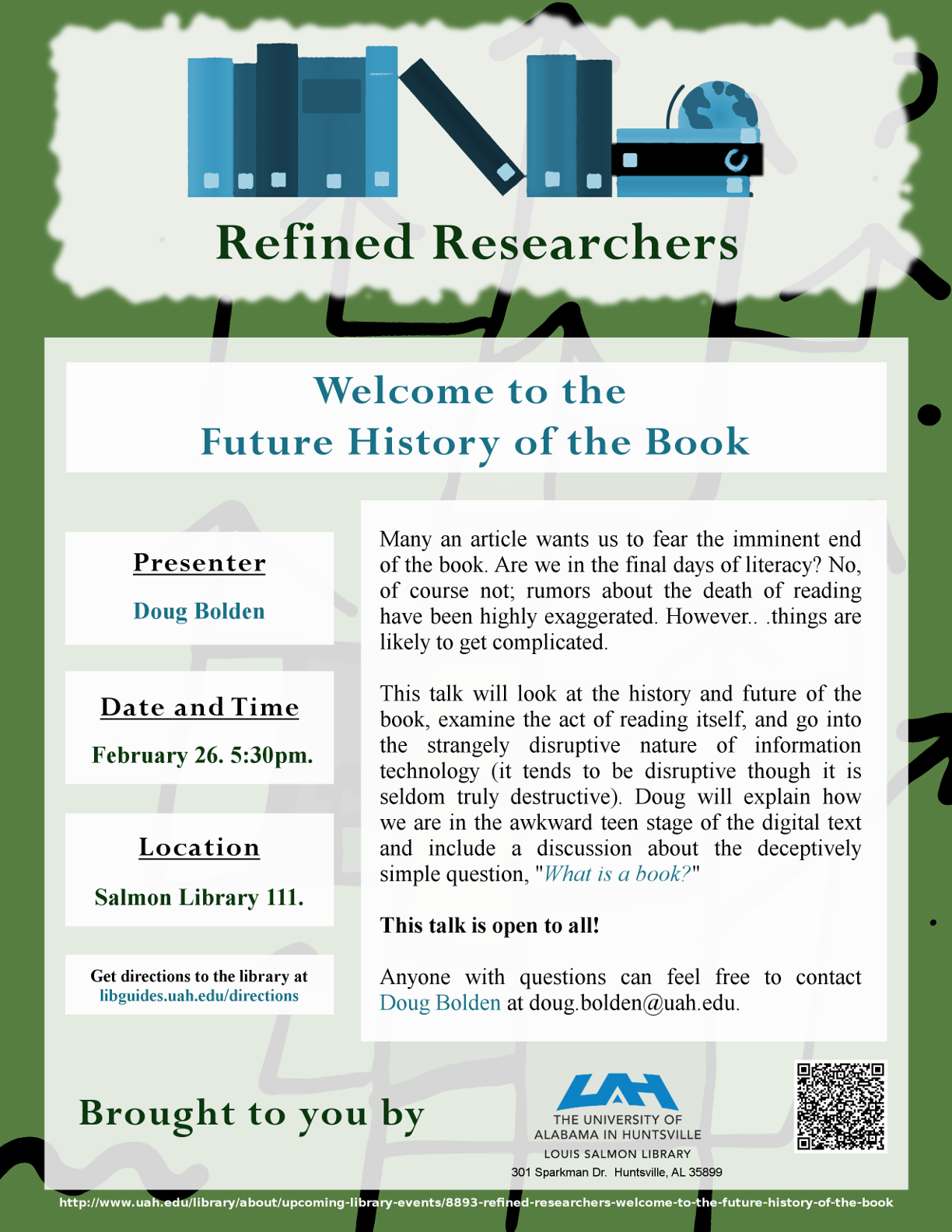
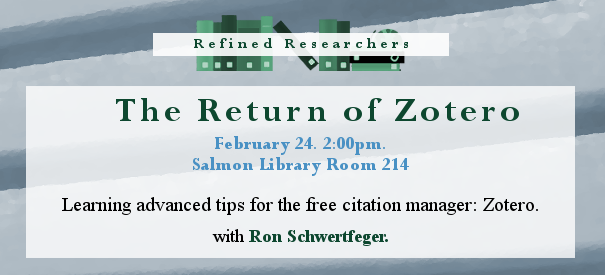
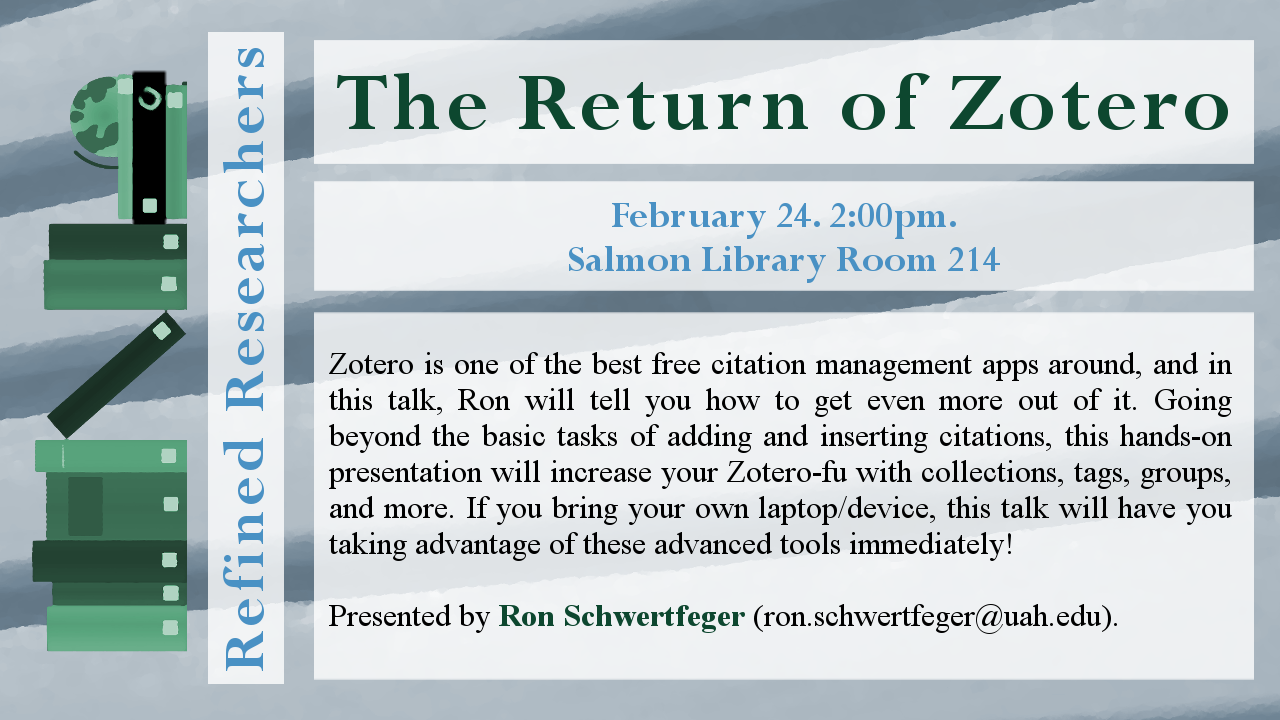
![The Left Side of Copy[right] Screenshot opening shot for the talk, showing a circle and the title "Left Side of [Copy]right"](http://libsys.uah.edu/LibraryBlog/wordpress/wp-content/uploads/2015/02/LeftSideofCopyRight.png)